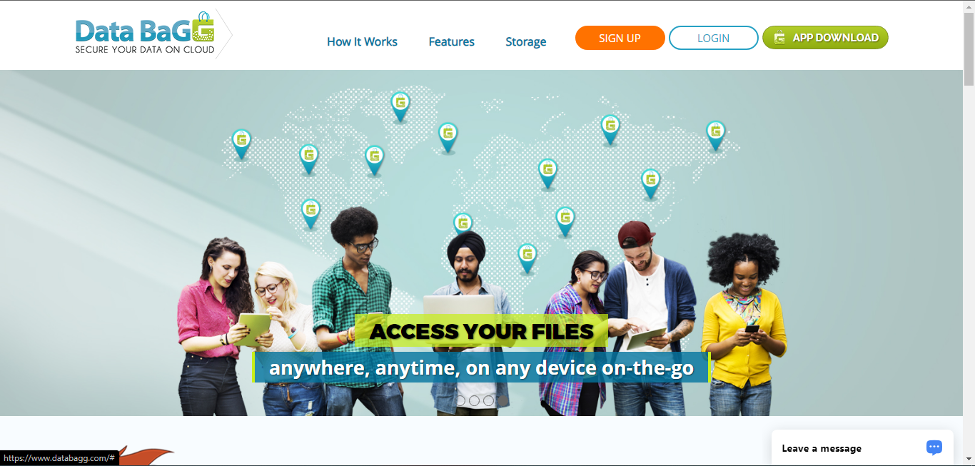Introduction
File storage services are essential for smooth data transfer and retrieval in today’s rapidly growing digital space. Notably, although widely known US-based providers such as Dropbox and Google Drive dominate the industry, non-US competitors such as DataBaGG from India and JustCloud from the U.K. have very attractive features. The purpose of this paper is to compare SugarSync, which is a U.S.-based service, against Data BagG (non-U.S.-based). The content of the analysis will address several issues, such as Terms of Service, Acceptable Use Policies, Data Privacy, Security Measures, and Personal Information Handling.
Description of Providers
The company’s file storage is named SugarSync, a US-known product. It enables users to store, share, and retrieve information quickly on any of the devices supported by it. However, Data BaGG is an Indian file-sharing service that compares with Dropbox and Google Drive in terms of performance.
Terms of Service
ToS is the core legal document that defines the rights and obligations of users in relation to service providers. The ToS documentation for SugarSync and Data Bagg is detailed to explain what is expected of users and outline limitations and legal considerations. These arrangements define the service’s rules and ensure that the parties involved are treated fairly.
Comparison of terms of service (ToS) Agreements
The data of the ToS agreement for SugarSync and Data BaGG gives subtle differences on close examination. SugarSync ensures compliance with respect to relevant rules by focusing on users’ behavior. Data BaGg’s ToS emphasizes the duty of a user, which comprises treating the rules and the resources well. Nevertheless, they focus on issues like assurances about data, operation, and legality of use, among others.
Acceptable Use, Conduct, and Data Privacy Policies
SugarSync and Data BaGg, on a close look at AUP ad conduct guidelines of an Internet user in a friendly manner, demonstrate the desire for a safe and civil Internet environment. The two suppliers prohibit any illegal use of data, data leakage, and spreading of harmful stuff. Furthermore, they comply with the regulation by taking necessary measures to protect user’s confidentiality in accordance with data protection laws.
Security of Accounts and Passwords
Since security matters significantly in this industry, Data Baagg also has a secure mechanism for user accounts and passwords like SugarSync. Through encrypted algorithms, both service providers ensure the safety of user information in transit and at rest. Multi-factor authentication is another feature that users benefit from to enhance security at various levels of their accounts.
Collection and Storage of Personal Information
To get a profile set up, Data BaGG also collects personal information, just like SugarSync. It also helps enhance Data services through this process. Among these many aspects, it has a few things like user names, emails, and device specifics. However, both companies emphasize safeguarding user information, so customers should consider the data they share and how it will be utilized. According to Adesina (2021), the data collected can quickly assist forensics in tracking and identifying specifics from the data collected. The ways that the two providers collect and store personal information include:
-
Account Registration Information:
In both SugarSync and Data BaGG: When registering accounts for users, SugarSync gathers personal details such as their full names, email addresses, and passwords selected by the users themselves. A user account is created and managed to keep such information safe.
-
Device Information:
Regarding SugarSync, the service gathers data on the respective devices used to access SugarSync; this includes the kind of device, its operating system, and the version in question. This information enhances the user experience and provides compatibility with every platform. Similarly, Data BaGG gathers data such as device identifiers, O.S. features, and hardware specs that help customize the service to match the features of the user’s devices.
-
Usage Analytics and Tracking
SugarSync and data BaGG may also apply some analytics tools, which can provide several details about interactions with the service, like file uploads, downloads, or patterns of access. The information is anonymous and aggregated to analyze service performance, identify trends, and improve user satisfaction.
The privacy policies of both service providers clearly describe the kinds of private information collected and why they are used.
Testing Non-U.S. Based Service: Data BaGG
I conducted Data BaGG’s free services by creating an account in the signup section. The user interface was intuitive, and file uploads and downloads were efficient. However, I experienced some minor issues while signing up, such as an error about trying again later.


Identifying Vulnerabilities
However, SugarSync and Data BaGG have weaknesses despite their benefits. According to Santiago (2019), The use of the pricing structure by SugarSync exposes it to some risks that could drive away frugal consumers. Data BaGG is efficient but could be affected by regional connectivity complications, affecting international users. Further, there may be worries about handling user data following different multinational privacy laws.
Conclusion
Finally, this analysis shows different methods of storing files across the globe. Robust solutions are available in U.S. and non-U.S. providers, each with pluses and minuses. Hence, users must meticulously consider their specific needs and preferences to reach a sound conclusion. Because the digital environment keeps changing, it is crucial to be aware of the terms of service, securities, and weaknesses.
References
Adesina, A., Adebiyi, A. A., & Ayo, C. K. (2021, November). Extending Traceability Technique to Client Forensic Investigation. In International Conference on Informatics and Intelligent Applications (pp. 311-324). Cham: Springer International Publishing.
Santiago, P. J. (2019). Cloud Data Storage Services: A Case Study Forensic Investigation of Cloud Data Storage Services (Doctoral dissertation, Northcentral University).
 write
write